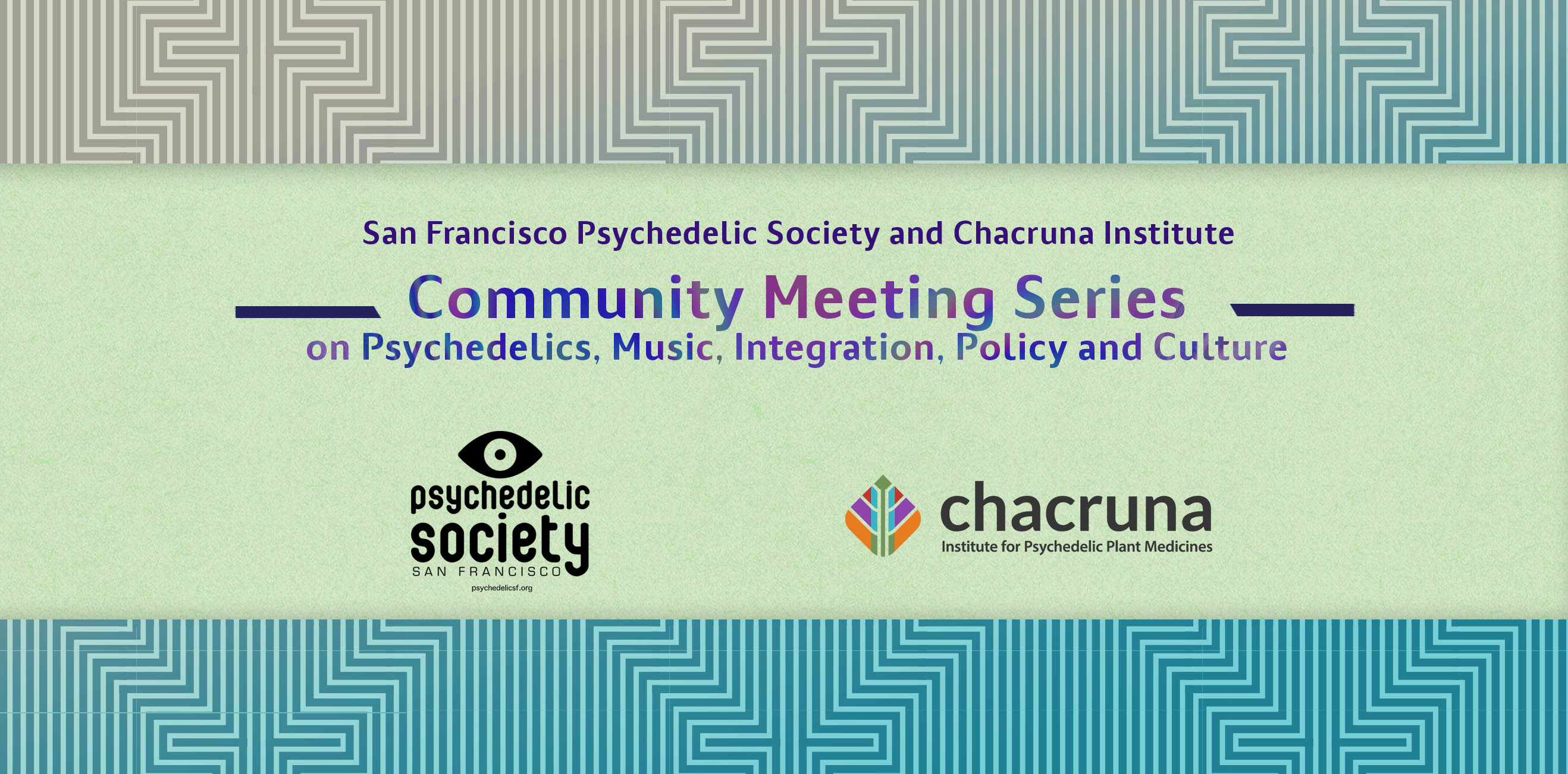- Meet Chacruna at Psychedelic Science 2025 - May 27, 2025
- Psychedelics and Attachment: Fundamentals, Implications, and New Frontiers - May 16, 2025
- Development Outreach Internship (OPEN) - May 6, 2025
San Francisco Psychedelic Society and Chacruna Institute Community Meeting Series on Psychedelics, Music, Integration, Policy and Culture
San Francisco Psychedelic Society and The Chacruna Institute for Psychedelic Plant Medicines are partnering up to create a cutting-edge series to infuse deep psychedelic knowledge on sacred plants, culture and policy into our growing, local community. Over the next ten months we will produce a five talk series with special guest speakers from Chacruna presenting in the cozy womb of SFPS 3rdThursday community meetings in San Francisco. You can expect revolutionary psychedelic research, music therapy, integration, policy, and wisdom and education in a more accessible form. Each talk will be followed by a breakout group with the speakers to integrate the presentations while weaving community and building new connections. We hope and intend that this new partnership combining Chacruna’s scholarly and educational expertise with the SF Psychedelic Society’s community-minded mission will foster deeper understanding and legitimacy regarding these substances.
February 21st, 2019.

An Examination of Psychological Healing with Ayahuasca
Clancy Cavnar
Ayahuasca has been progressively regarded as a tool for psychological exploration, healing, and mental well-being. Family dynamics, past trauma, and unacknowledged feelings are often brought to the forefront in early experiences of drinkers, and several authors have written about the importance of integration of the powerful visionary experiences people have. This paper will explore the claims made by those who have experienced psychological benefits from ayahuasca, as found in the academic literature and published personal accounts. It will consider reports of psychological insights gained, and the resulting personal transformation or healing that took place. It will also analyze and identify the specific elements of the ayahuasca experience that are considered to be key to psychological healing, both within the experience and afterwards; these aspects will be related to psychodynamic and transpersonal theories of healing. Finally, the text will contemplate what is known about ayahuasca as a mood enhancer, and how that may assist psychological healing.
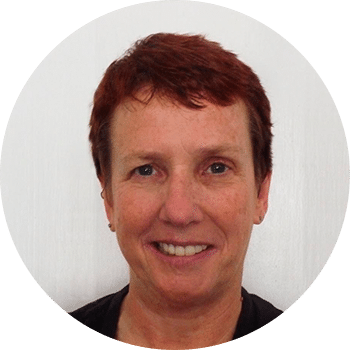
Clancy Cavnar has a doctorate in clinical psychology (Psy.D.) from John F. Kennedy University in Pleasant Hill, CA. She currently works in private practice in San Francisco, and is Associate Director of the Chacruna Institute for Psychedelic Plant Medicines (https://chacruna.net), an organization that provides public education about psychedelic plant medicines and promotes a bridge between the ceremonial use of sacred plants and psychedelic science. She is also a research associate of the Interdisciplinary Group for Psychoactive Studies (NEIP). She combines an eclectic array of interests and activities as clinical psychologist, artist, and researcher. She has a master of fine arts in painting from the San Francisco Art Institute, a master’s in counseling from San Francisco State University, and she completed the Certificate in Psychedelic-Assisted Therapy program at the California Institute of Integral Studies (CIIS). She is author and co-author of articles in several peer-reviewed journals and co-editor, with Beatriz Caiuby Labate, of eight books. For more information see: http://neip.info/pesquisadore/clancy-cavnar
7:00-9:00 pm
Location: Odd Job Bar, 1337 Mission St., 3rd floor, San Francisco, CA
Tickets here
Facebook event here
April 18th, 2019

How to Deal With a Troubling Psychedelic Experience
Alexander Theberge
Plant medicines and psychedelics, used in thoughtful and intentional ways, can be incredibly life changing and transformative. They offer the potential for profound spiritual experiences and deep healing not offered by other modalities. But these experiences can sometimes be very challenging, difficult, dark, or painful. This is especially true when the person is unprepared for the magnitude of what they experience or is working with psychedelics in an unintentional manner. Even people going through positive transformative journeys with psychedelics can find themselves struggling to come to terms with what happened or return to a balanced state. It is not always a smooth process even in the best of circumstances and there are often bumps along the road of psychedelic experience. And there are a variety of experiences that can be particularly troubling and deeply challenging for someone journeying with psychedelics or plant medicines. Based on my experience working with hundreds of people before, during, and after psychedelic and plant medicine journeys, I have identified several archetypes of troubling or challenging experiences that can occur as part of a psychedelic experience. These include the classic “bad trip,” experiences with a hellish quality, unexpected revelations, the rocky return home, the spiritual crisis, and psychotic breaks. This talk examines each of these scenarios, discusses how to deal with them as they happen, and offers integration guidance for each of the different archetypes.
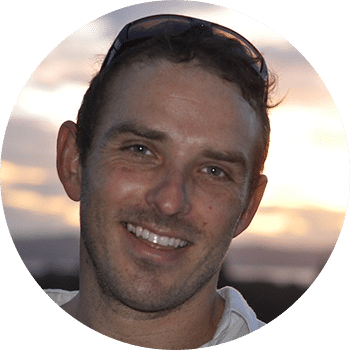
Alex Theberge, MFT is a Licensed Marriage and Family Therapist based out of San Francisco specializing in psychedelic integration and support. He has been exploring psychedelics for 25 years, has spent several years living in the Peruvian Amazon studying ayahuasca shamanism and facilitating plant medicine ceremonies, and continues to lead plant medicine retreats to Peru. Previously, Alex worked at the University of California San Francisco’s Langley Porter Psychiatric Institute where he was a staff therapist and Program Manager in the Partial Hospitalization Program. Alex has a 15 year history of working in diverse clinical and healing settings including community mental health, residential treatment, and hospice care. He is a member of the Charuna Institute for Psychedelic Plant Medicines Women, Gender Diversity, and Sexual Minorities Working Group.
7:00-9:00 pm
Location: Odd Job Bar, 1337 Mission St., 3rd floor, San Francisco, CA
Tickets here
July 18th, 2019
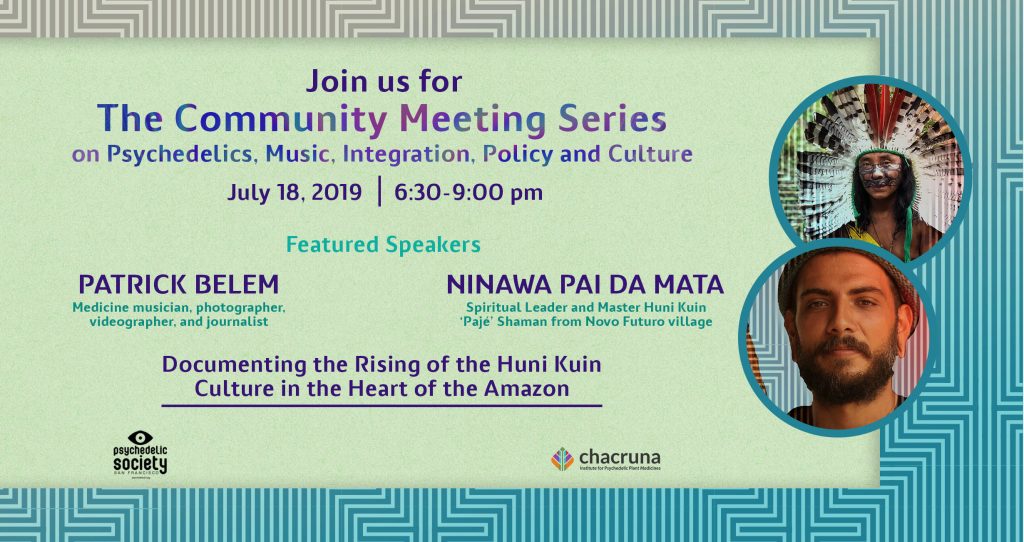
Documenting the Rise of Huni Kuin Culture in the Heart of the Amazon
Patrick Belem and Ninawa Pai da Mata
In this presentation, Patrick, along with Ninawa Pai da Mata, a medicine music man and spiritual leader of a Huni Kuin village, will be showing some photographs and some clips from the Eskawatã Kayawai documentary in progress. They will share their experiences of working with the Huni Kuin on the project in the Amazon forest. Within the three years since his first contact, Patrick has been to several villages deep in the forest; he will discuss his learning process there and how it affected his personal life and the film itself. Ninawá Pai da Mata, the main character of the film, will be sharing his views and songs and talking about his culture and music. There will be Huni Kuin jewelry, rapé, and other artifacts available for sale, which will directly fund the project. Also, we will be collecting donations to fund the rest of the project, which is being accomplished with collective fundraising.
About the Film: Eskawatã Kayawai Project
The Huni Kuin had a hard time living in their homeland; they were once forbidden to live their own culture and speak their own language. After many years living in slavery to white people, abusing alcohol, and being castrated by the church, they have awakened to return to their roots, rediscovering their ancestrors and remembering their culture, once forbidden and censored. This film is about a region where they stood up for themselves and changed their destinies forever, entering a new era: the time of indigenous rights. In this new era, the Huni Kuin again live in harmony with nature, bearing their sacred knowledge and sharing their healing culture around the world through the wisdom and spirituality of the forest. They also share their own cultural festivals, where they unite the indigenous with the non-indigenous, creating a great cultural apex. We hope this film can help other indigenous lands, and societies as a whole, to get back to their roots and be in harmony with themselves and planet Earth.
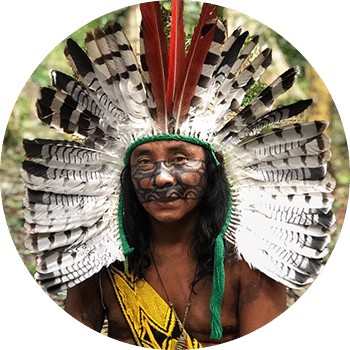
Ninawa Pai da Mata is a Spiritual Leader and Master Huni Kuin ‘Pajé’ Shaman from Novo Futuro village, which are located at Humaita region of Acre estate in the Brazilian Amazon.For the past 6 year’s he been organizing the Festival Huni Kuin Eskawatã Kayawai in his village with his community, and also implementing projects for bettering their way of living in his homeland in nowadays with his indigenous charity Instituto Socio-Cultural Huni Kuin, and he been dedicating his life since a decade on spreading the message, and spirituality of the forest and the Huni Kuin around the globe. He is a beautiful spirit that carries with him a long lineage and vast ancient wisdom of many thousands of years from his tribal Huni Kuin ancestors. Ninawa is a being of love and compassion and this is his second time visiting the USA, bringing messages of healing for the planet, his beautiful music, chants and teachings from the forest.
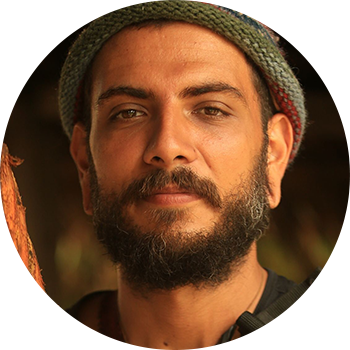
Patrick Belem is a free spirit, medicine musician, photographer, videographer, and journalist. His main work, besides creating and singing medicine music, is as a cinematographer. Patrick is the codirector, together with Lara Jacoski, of Bem-te-vi Produções, an initiative that focuses on producing multicultural content that seeks connect all people as one, making documentary films on social issues in India, Thailand, Morocco, Bolivia, Peru, and, for the past two years, focusing on indigenous themes in Brazil. Patrick has a spiritual path that started very young, as his family owns a Kardecist Spiritual Center. By the age of 15, he had tried many different spiritual paths to get to know himself, participating in Gurdjieff studies, the work of Trigueirinho, and Santo Daime, until he met the Huni Kuin and drank ayahuasca with them. Finding the place that reverberated within his heart, Patrick resonated with them, celebrating life while healing with joy, happiness, and a light heart. Patrick will launch his first album of medicine music in late 2019; in 2020, Patrick and Lara will launch their first feature film about the Huni Kuin culture and tradition.
www.bemteviproducoes.com.br
https://www.instagram.com/ptrckblm/
6:30-9:30 pm
Location: Women’s Building, 3543 18th St. #8, San Francisco
Tickets here
August 15th, 2019

Creating Playlists For Psychedelic Therapy
Matt “River” Baldwin
This talk encapsulates perspectives from The Chacruna Institute’s Psychedelic Therapy Music Forum; providing a brief history of the use of music in psychedelic work, theoretical information on the structure of playlists and clear practical steps on how to create musical playlists for psychedelic work, both within and outside of a research setting. It will cover a variety of points, including: 1. The different multiphase models for musically-driven psychedelic journeys 2. Technical audio issues and ways to maintain sound quality 3. Fixed vs more flexible playlist approaches 4. The usefulness and appropriateness of different styles of music for psychedelic playlists 5. How to individualize playlists for each listener. The talk ultimately makes a case for psychedelic therapy being a form of music therapy, with the depth and power of the music selected being one of the most important factors in play.
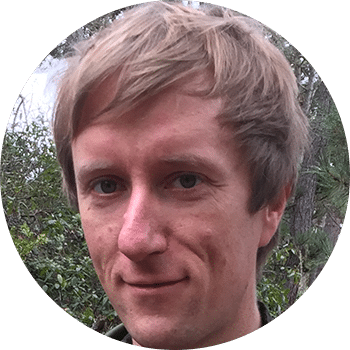
Matt “River” Baldwin, MFT, is a musician and psychotherapist living in San Francisco. He is a 2017 alumnus of the California Institute of Integral Studies’ Psychedelic Assisted Psychotherapies and Research Program. He has produced 9 albums of music under his own name, collaborated with a variety of artists, and has toured widely as a performer. He specializes in the use of music in psychedelic psychotherapy, having designed playlists for a MAPS Phase 3 MDMA trial and a variety of other applications. Matt holds a bachelor’s degree in rhetoric from The University of California at Berkeley and a master’s degree in counseling psychology from John F. Kennedy University. He is currently Director of the Psychedelic Music Therapy Forum for the Chacruna Institute for Psychedelic Plant Medicines, an organization that provides public education about psychedelic plant medicines and promotes a bridge between the ceremonial use of sacred plants and psychedelic science.
7:00-9:00 pm
Location: The Heaven – 3007 Telegraph, Oakland
Disclaimer: This venue is for ages 21+ attached to a cannabis dispensary. Please bring valid ID, passport or drivers license to be able to enter the building.
Tickets here
October 17th, 2019.
The Peyote Files
with Dr. Martin Terry
A Documentary Series
Co-directed by Bia Labate and Nicholas Spiers
Produced by the Chacruna Institute for Psychedelic Plant Medicines
Special participation Q & A: Dawn D. Davis

The Peyote Files is a documentary web series following the anthropologist Dr. Bia Labate in the search for the elusive peyote cactus in West Texas. Built around the frank exchanges between Bia and the cactus expert and conservationist Dr. Martin Terry, this three-part series offers an eye-opening insight into Martin’s pioneering work to understand the threats faced by peyote and the urgent action needed to ensure its survival. In episode one (Peyote Territory) Bia and Martin trek through peyote’s natural habitat and discuss its unusual morphology, psychoactive nature, history of human interest, and Martin’s irrepressible zeal for all things cacti. Martin’s rigorously scientific understanding of peyote’s evolutionary context challenges the mystical assumptions often underpinning the role of its psychoactive properties. Returning to Alpine in episode two (Peyote Threats), Martin shows Bia the collection of peyote cacti he nurtures and studies in his fortified greenhouse—following strict DEA regulations—and explains the current threats to peyote populations, such as the destruction of peyote’s habitat and the pressures of overharvesting. In episode three (Peyote Conservation), Martin outlines the research and action he is carrying out, along with the Cactus Conservation Institute, to mitigate these threats, including spreading awareness of sustainable harvesting techniques, the impact of frequent, repeat harvesting, and the urgency of cultivation. Throughout the series, different epistemological approaches to, and ontological conceptions of, peyote are discussed, as well as the political implications of protecting an indigenous sacrament. This series represents a testament to Martin’s tireless conservation efforts and a call to action to recognize and respect the right to exist of this extraordinary cactus, before it’s too late.
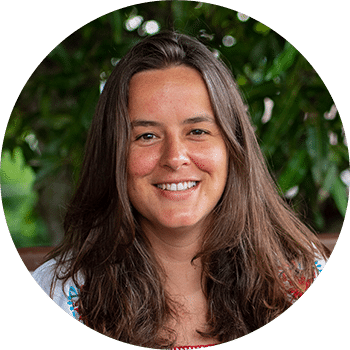
Dr. Beatriz Caiuby Labate (Bia Labate) is a queer Brazilian anthropologist who immigrated to the U.S. in 2017. She has a Ph.D. in social anthropology from the State University of Campinas (UNICAMP), Brazil. Her main areas of interest are the study of plant medicines, drug policy, shamanism, ritual, and religion. She is Executive Director of the Chacruna Institute for Psychedelic Plant Medicines (https://chacruna.net), an organization that provides public education about psychedelic plant medicines and promotes a bridge between the ceremonial use of sacred plants and psychedelic science. She is Adjunct Faculty at the East-West Psychology Program at the California Institute of Integral Studies (CIIS) in San Francisco, and Visiting Professor at the Center for Research and Post Graduate Studies in Social Anthropology (CIESAS) in Guadalajara. She is also Public Education and Culture Specialist at the Multidisciplinary Association for Psychedelic Studies (MAPS). She is co-founder of the Interdisciplinary Group for Psychoactive Studies (NEIP) in Brazil, and editor of NEIP’s website (http://www.neip.info), as well as editor of the Mexican blog Drugs, Politics, and Culture (http://drogaspoliticacultura.net). She is author, co-author, and co-editor of twenty books, one special-edition journal, and several peer-reviewed articles (http://bialabate.net).
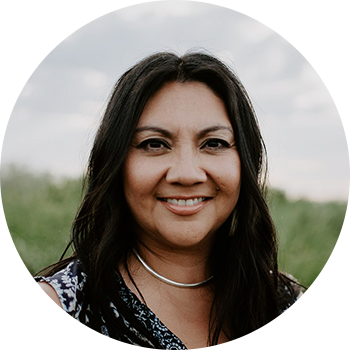
Dawn D. Davis is a mother, a wife, and a PhD student at the University of Idaho in the Natural Resources program. Her current research uses GIS as one tool to analyze the environmental and anthropogenic issues that surround the revered peyote (Lophophora williamsii) plant, which is integral to her spiritual practice as a Shoshone-Bannock Tribal woman. She is a twice awarded National Science Foundation recipient as a fellow under the Integrative Graduate Education Research Traineeship and as an Indigenous Science Technology Engineering and Math scholar. Dawn has shared her research among Native American, academic, ethnobotanical, and psychedelic audiences nationally and internationally.
6:30-9:00pm
Location: The Haven 3007 Telegraph Ave, Oakland
Tickets here
Take a minute to browse our stock:
Did you enjoy reading this article?
Please support Chacruna's work by donating to us. We are an independent organization and we offer free education and advocacy for psychedelic plant medicines. We are a team of dedicated volunteers!
Can you help Chacruna advance cultural understanding around these substances?


